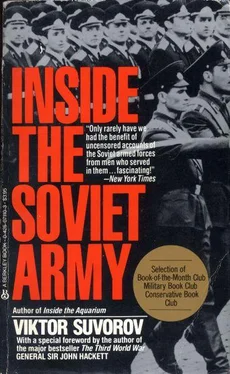Finland is the only country which has fought a war against Soviet aggression without ever having allowed Soviet tanks to enter its capital.
It is therefore surprising that it is Finland which has become the symbol of submission to Communist expansion. Halted by the valour with which this brave country defended itself, the communists changed their tactics. If they could not bring the Finns to their knees by fighting, they decided they would do it by peaceful methods. Their new weapon turned out to be more powerful than tanks. Soviet tanks entered Yugoslavia and Romania but both countries are independent today. They never reached Helsinki, but Finland has submitted.
This result surprised even the Soviet Communists themselves and it took them a long time to appreciate the power of the weapon which had fallen so unexpectedly into their hands. When they finally realised its effectiveness, they put it to immediate use against the remaining countries of Western Europe. Its effects are to be seen everywhere around us. The Communists knew that they could never seize Western Europe so long as it was capable of defending itself, and this is why they concentrated their attacks on Western European determination to stand up to them.
Pacifism is sweeping through the West. It is doing the same in the Soviet Union. In the West, though, it is uncontrolled while in the USSR it is encouraged from above. However, both movements have a common aim. Western pacifists are fighting to stop the installation of new rockets in Western Europe. Soviet pacifists speak out for the same cause-against the installation of rockets in Western Europe.
1
When I lecture to Western officers on tactics in the Soviet Army, I often close my talk by putting a question to them-always the same one-in order to be sure that they have understood me correctly. The question is trivial and elementary. Three Soviet motor-rifle companies are on the move in the same sector. The first has come under murderous fire and its attack has crumbled, the second is advancing slowly, with heavy losses, the third has suffered an enemy counter-attack and, having lost all its command personnel, is retreating. The commander of the regiment to which these companies belong has three tank companies and three artillery batteries in reserve. Try and guess, I say, how this regimental commander uses his reserves to support his three companies. `You are to guess, I say, `what steps a Soviet regimental commander would take, not a Western one but a Soviet, a Soviet, a Soviet one.
I have never yet received the correct reply.
Yet in this situation there is only one possible answer. From the platoon level to that of the Supreme Commander all would agree that there is only one possible decision: all three tank companies and all three artillery batteries must be used to strengthen the company which is moving ahead, however slowly. The others, which are suffering losses, certainly do not qualify for help. If the regimental commander, in a state of drunkenness or from sheer stupidity, were to make any other decision he would, of course, be immediately relieved of his command, reduced to the ranks and sent to pay for his mistake with his own blood, in a penal battalion.
My audiences ask, with surprise, how it can be that two company commanders, whose men are suffering heavy casualties, can ask for help without receiving any? `That's the way it is, I reply, calmly. `How can there be any doubt about it?
`What happens, ask the Western officers, `if a Soviet platoon or company commander asks for artillery support. Does he get it?
`He has no right to ask for it, I say.
`And if a company commander asks for air support-does he get it?
`He has no right to ask for support of any sort, let alone air support. My audience smiles-they believe they have found the Achilles heel of Soviet tactics. But I am always irritated-for this is not weakness, but strength.
How is it possible not to be irritated? A situation in which every platoon commander can ask for artillery support is one in which the divisional commander is unable to concentrate the full strength of his artillery in the decisive sector-a platoon commander cannot know which this is. A situation in which every company commander can call for air support is one in which the Commander of a Group of Armies is unable to bring together all his aircraft as a single striking force. To a military man this represents something quite unthinkable-the dispersal of resources.
2
The tactics used by Jenghiz Khan were primitive, in the extreme. His Mongolian horsemen would never engage in a single combat in any of the countries which his hordes overran. The training for battle which they received consisted solely of instruction in maintaining formation and in the observance of a disciplinary code which was enforced in the most barbarous way.
During a battle Jenghiz Khan would keep a close watch on the situation from a nearby hill. As soon as the slightest sign of success was visible at any point, he would concentrate all his forces there, sometimes even throwing in his own personal guard. Having broken through the enemy's line at a single point he would push irresistibly ahead and the enemy army, split in two, would disintegrate. It is worth recording that he never lost a battle in his life. Centuries passed and new weapons appeared. It seemed that this ancient principle of war was dead and buried. That at least was how it seemed to the French armies at Toulon. But then the young Bonaparte appeared, mustered all the artillery at the decisive spot and won his first brilliant victory with lightning speed. Subsequently he always concentrated his artillery and his cavalry in large numbers. In consequence, his junior commanders were deprived of both artillery and cavalry. Despite this, for decades his armies won every battle. At Waterloo he paid the penalty for abandoning the principle of concentrating his forces in the most important sector. His defeat there was the price he paid for dispersing his resources.
More time passed, tanks, aircraft and machine-guns made their appearance. The principles of Jenghiz Khan and Bonaparte were completely forgotten in France. In 1940 the Allies had more tanks than the Germans. They were evenly distributed among infantry sub-units, whose commanders were proud to have tanks directly under their command. Their German opposite numbers had no such grounds for pride, and this was the reason why Germany's victory was so rapid and so decisive. The German tanks were not dispersed but were concentrated in what, by the standards of 1940, were huge groups. The Allied tanks were scattered, like widely-spread fingers, which could not be clenched to make a fist. The German tanks struck, as a fist, unexpectedly and at the weakest point. The Germans' success has gone down in history as a victory which was won by their tanks.
3
Soviet tactics are of the utmost simplicity; they can be condensed into a single phrase-the maximum concentration of forces in the decisive sector. Anyone who was found responsible for dispersing forces of divisional strength or above during the war was shot without further ado. At lower levels the usual penalty for wasting resources in this way was reduction to the ranks and a posting to a penal battalion, which would also lead to death, though not always immediately, it is true.
Every Soviet operation, from Stalingrad onwards, developed in the way water breaks through a concrete dam: a single drop seeps through a microscopic crack, and is followed immediately by a dozen more drops, after which first hundreds and then thousands of litres pour through at ever increasing speed, becoming a cataract of hundreds of thousands of tonnes of raging water.
Читать дальше












